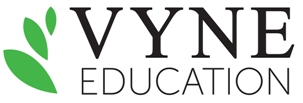Printer Friendly Copy
Child and Adolescent Self-Injury: Practical Assessment and Treatment Approaches
VYNE

Format(s): Home-study
Discipline(s): Counseling / Social Work / Psychology
Contact Hours:
Registration Fee: $179
Objectives
1. Do you work with children who deliberately hurt themselves? Are they cutters? Do they burn or pierce their bodies? Pull out their hair, bang their heads or compulsively pick at their skin or face? Starve or purge to the point of bulimia or anorexia? Do you understand why? Do you know what to do
2. Discover how to complete emergency triage, behavioral functional analysis, clinical interview and mental status examination of children who self-injure
3. Learn the risk factors and protective factors that stop children from hurting themselves
4. Obtain specific clinical interview questionnaires and note-taking guides, with step-by-step instructions to evaluate and treat children who self-injure
5. Discover motivational interviewing and exposure therapy, as well as innovative art, journaling, music, Internet and "no talk" play therapy techniques
Target Audience
Clinical Psychologists
Psychiatrists
Marriage and Family Therapists
School Guidance Counselors
Case Managers
Licensed Clinical Social Workers
Licensed Professional Counselors
Drug and Alcohol Counselors
Pediatricians, Emergency Room Primary Care Physicians
Emergency Room Nurses
Psychiatric Nurses
Psychiatric Nurse Practitioners
School Teachers
Child Protective Service Staff
Pastoral Counselors/Clergy
Confirmation Notes
Receive unlimited access from the time of purchase through completion and submission of the online exam. Once the exam is taken the seminar will be available for 30 days before course access expires.
CE Information: Click on the "purchase" button for CEU details.
Description
Children and adolescents who deliberately inflict physical pain and injury to their bodies vary in terms of their motives and self-harming methods. Feeling shame and embarrassment, these children may privately console themselves, or befriend other self-injurious peers—which can further intensify the lethality and suicidal intent of their acts. As a result, studies show that professionals who work with youth who self-injure find it to be one of the most challenging of psychological and behavioral issues. Mental health professionals, pediatricians, school counselors and teachers, and youth workers have all conveyed that they feel ill-equipped to help these children. The incidence of youth self-injury has risen in our schools and homes, affecting all socioeconomic classes. Further still, self-harming children may be experiencing any number of psychiatric disorders—from Major Depressive Disorder, to Obsessive-Compulsive Disorder, to bulimia and anorexia, to alcohol and substance abuse.
This seminar will thoroughly educate mental and medical health professionals, school counselors and teachers about the assessment and treatment of youth self-injury. Evidenced-based reviews, complete with case examples, will explain the theoretical, historical and cultural reasons for this problem. Practical approaches for individual and group psychotherapy, with resources to help professionals advocate for these children, will be offered. To help you formulate a comprehensive treatment plan, specific interview questionnaires and note-taking methods will be discussed. Well-established motivational interviewing, family therapy and play therapy techniques will be covered with step-by-step instruction and demonstration. Participants will leave this seminar confident that they can identify and quickly treat this damaging condition.
Purchase Today
Provider does not currently list available courses on RehabEdge.